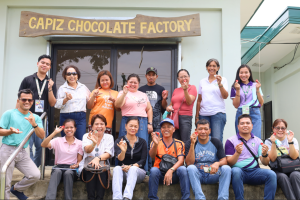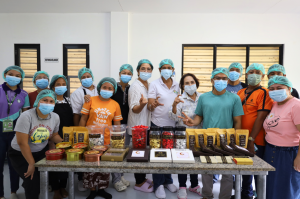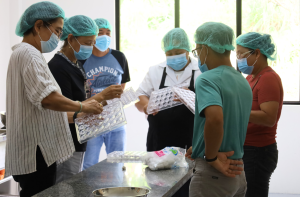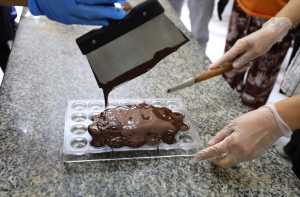Capiz empowers local farmers with Training on Cacao Post-Harvest Processing
Posted by: RAFIS DA6 | Posted at: July 29, 2024

To enhance the local cacao industry, around 20 cacao farm owners and growers from across Capiz participated in a training on cacao post-harvest processing, fermentation, and drying. This event was organized and funded by the Department of Trade and Industry (DTI) in collaboration with the Capiz Cacao Producers Cooperative (CCPC) and the Department of Agriculture (DA).

The five-day hands-on training, led by ISAT University-Leon Campus Instructor and Agriculturist Francis Sendin, aimed to introduce innovative solutions for properly fermenting and processing cacao beans. “We want to improve the quality of beans that we are producing so that the quality of our chocolate and our tablea will also improve,” Sendin explained.
The training combined theoretical knowledge with practical application, covering essential topics such as proper post-harvest handling, the details of fermentation, and the steps in drying cacao beans. Sendin also provided insights into the latest industry standards and market trends, emphasizing how high-quality post-harvest processes can enhance the market value of cacao.


CCPC President Rose Marie Conlu expressed gratitude to the participating agencies for their unwavering support. “This training is a collective effort to uplift the cacao industry in Capiz. By educating our cacao growers on proper harvesting techniques and adopting these improved practices, our farmers can ensure better quality beans, opening up more opportunities for our local produce in both national and international markets,” Dr. Conlu stated.
Participants were enthusiastic about the newfound knowledge and skills, recognizing the potential impact on their farming practices.
Janet Lim Pineda, a cacao grower from President Roxas, Capiz, shared, “This training has been incredibly informative. I now understand the critical role of fermentation and drying in determining the flavor and quality of chocolate. By learning these myself, I can disseminate the knowledge to my farm workers and implement these practices on my farm.”
The collaboration between the CCPC, DTI, and DA highlights the government’s commitment to support farmers and promoting sustainable agricultural practices. This training is expected to significantly improve cacao production in Capiz, fostering economic growth and ensuring that local farmers remain competitive in the growing global cacao market.


As the cacao industry in the region continues to grow, such initiatives play a crucial role in empowering farmers, enhancing product quality, and boosting the local economy. (By: MSSubang and CFLauresta/DA-RAFIS 6)






